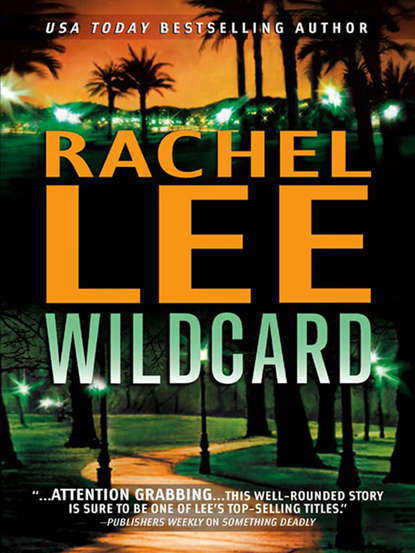По всем вопросам обращайтесь на: info@litportal.ru
(©) 2003-2025.
✖
Wildcard
Настройки чтения
Размер шрифта
Высота строк
Поля
“I know, precious. I know.”
If only it were true. If only anything were true.
“Lovely ceremony, Edward,” Harrison Rice said, extending a hand. “Your daughter is a stunning bride.”
“Thank you, Senator. I don’t quite know how to feel about it, but…thank you.”
Rice held on to his friend’s hand for an extra moment while flashbulbs popped in the fading evening light. Some were wedding photographers. Others were society press on hand to cover “the wedding of the season.” The rest, and that was most of them, were covering Rice’s campaign…again. Or still, depending on one’s perspective. He pressed his face close to his friend’s ear and whispered, “I know exactly what you mean there.”
Edward Morgan met his eyes for a moment and nodded. “Yeah, I guess you would.”
For Rice, the past forty-eight hours had been an emotional whirlwind. It had begun with the assassination in Guatemala and its aftermath, as news camera crews chased him across Mississippi, Louisiana and Texas to secure him as a guest on one talk show after another. He’d had to cancel a scheduled campaign appearance, although his staff had assured him that he would get far more mileage out of the TV time.
He supposed they were right. The speech probably wouldn’t have made enough of a difference, even if he himself would have found it more reassuring. He always preferred a live audience to the blank eye of a camera. But he’d had too high a mountain to climb yesterday. Lawrence had been a lock in his home state of Florida. Rice had known he would have to win Texas and split the other two Southern states to have a chance. He hadn’t. Grant won decisively in Texas, Louisiana and Florida, easily giving him enough delegates to lock up the nomination.
And Rice’s campaign had been over. For about an hour.
Unlike most Americans, Rice had not been watching as Grant Lawrence was shot. He’d been sitting with his wife, taking a few minutes of silent consolation, away from the press and the cameras and his staff and even his friends. Some moments should be private, and that had been just such a moment. Until a staffer began pounding on his door, shouting, “Someone shot Lawrence!”
Rice had emerged in time to see the first of the now endless reruns of the attack. He’d had to turn away. While they had been rivals in this campaign, he and Grant had been Senate colleagues for years. They had been guests in each other’s homes on numerous occasions. Rice had never felt as if he was on Grant’s short list of true confidantes, but he’d liked and respected him. He’d watched Lawrence cope with the death of his wife, and, years later, the brutal murders of his lifelong nanny and a former girlfriend that culminated in the kidnapping of his children. The man had endured enough. And now this…
Now Rice was expected to carry the Democratic banner, the Grant Lawrence banner. His campaign had gone from dead to full steam ahead in the few seconds it had taken for a would-be assassin to squeeze the trigger of a handgun. Rice couldn’t help feeling sick about it, even as the object of his lifelong ambition loomed nearer than ever.
“You look like you need to talk,” Edward said, too quietly for anyone else to hear.
Rice realized his thoughts must have been showing on his face, a trait he’d picked up from his mother, a former stage actress in Birmingham. Edward had, intentionally or not, reminded him that appearances are everything in the world of presidential politics.
Rice nodded. “It’d be nice to catch up.”
“After the reception,” Edward said. “We’ll go sit in the den, drink a couple of beers and pretend we’re back in college.”
It was, Rice thought, the nicest invitation his old friend could possibly have made. It was certainly better than brooding about the rest of his life.
4
Washington, D.C.
“Coffee?” Tom asked, holding out a foam cup.
Miriam looked up and smiled. “You read my mind.” She took a sip and pushed a stack of papers away. “What a waste of time.”
Tom sat and sipped his coffee. It was Bureau issue: too strong, too bitter. If he let himself think about such things, it was probably a subtle tribute to the Bureau’s founder and the man for whom this building was named. John Edgar Hoover had also been too strong, too bitter. And his ghost still walked these halls.
“What did you expect?” Tom asked. “There was no way Kevin could put us in the middle of this. We’re damaged goods. So we get to waste time while the rest of them do the real work.” He eyed the stacks of files with distaste. “Prove there was no conspiracy to assassinate Lawrence. Helluva job, proving a negative. And we get it because I freaked in L.A.”
“And because I know Grant personally,” Miriam reminded him. “It’s not that bad. Face it, Tom, like it or not, somebody’s got to do it or we’ll be hearing conspiracy theories for the next fifty years. It’s just…”
“What?” Tom asked.
He’d spent enough time with her to recognize the subtle cues that flickered through her eyes. She wasn’t thinking about the case.
“Terry called while you were out,” she said. “Grant is out of surgery, but it’s not promising. The bullet in his chest took a lung. The other one perforated his liver and spleen. He still hasn’t regained consciousness. They don’t know if he ever will. Karen’s a wreck, and apparently there’s a big debate about whether she should even be allowed in to see him. Dammit, Tom, you’d think in the twenty-first century it would be okay for a president’s wife to have a job! You’d think it would be okay for Grant and Karen to get engaged, get married.”
Tom nodded quietly. He didn’t bother to remind her that Karen would be seriously hampered as a detective with a couple of Secret Service agents always at her side. Besides, Miriam Anson didn’t open up often. On the few occasions when she had, he’d quickly decided the best course of action was to simply sit and listen, offering the occasional question more as a way of letting her know it was okay to continue than because he needed more information. It was a technique he’d learned while trying to help his father work through the death of Tom’s mother, and again two years later, when the last shreds of his father’s confidence had turned to dust during the trial. Now Tom often used the same technique in his work.
“Grant’s daughters are a mess, of course,” Miriam continued. “Karen’s doing her best to comfort them. I think about what I’d be like if it were Terry. They say helplessness is the most depressing thing in the world.”
“It is,” Tom said.
He knew from experience. He’d never met Karen Sweeney, but simply knowing she was a career homicide cop told him a lot about her. She would want to fix things. To do something…anything. To help the doctors. To help the Tampa cops and the Bureau. Something to make it better. But for now, all she could do was to sit in the hospital with Grant’s daughters. And pray. And wait. Like Tom and his father had done in those last days. Watching his mother fade away. Like Tom had done as his father slipped into a dark and dangerous obsession.
For a moment Miriam’s eyes shimmered. Then they hardened. “Damn it. Where is it writ large on the cosmos that the world has to be such an ugly place?”
It was a question cops had to ask themselves far too often. A question Tom had asked countless times over the past three years and almost nonstop for the past month. A question for which there was no answer.
“Like this garbage,” Miriam continued, holding up one of the files on her desk. “Why on earth would people believe this stuff? Commit themselves to this kind of rubbish?”
“Hey,” he said, “why would people commit themselves to the kind of shit we do? Just because we’re on the right side doesn’t mean we’re always doing the right thing.”
The anger in his question silenced her. For an instant, regret pierced his fury. “Miriam, I’m sorry. I’m just… I’ll get over it, all right?”
Miriam looked at him; then a small chuckle escaped her. “Miracles happen.”
“Right. Now, let’s get on with this chickenshit. Who knows? Maybe for once there really is a conspiracy.”
“Wouldn’t that be something?” Miriam said, trying to shift her mood and possibly his.
“This whole conspiracy thing…” Tom shook his head. “I know they happen. I mean, we’ve got a stack of files to choke a horse here, and these are just the incompetent idiots we’ve managed to get wind of. People conspire all the time in business. Take Enron as an example. But to go after a politician…that’s a different can of worms.”
Tom leaned over the desk and caught her gaze, holding it tight. “If there’s a conspiracy to kill a major contender for the presidency, what have you got?”
She hesitated, not quite sure where he was heading.
“You’ve got a coup,” he said. “You’ve just influenced the entire outcome of the election. You’ve made sure that only people you can live with are running for the office.”
Miriam nodded, still not sure where he intended to go with this.
“It wouldn’t be the first time,” he said. “Look at the Kennedy hit.”
“Oh, damn, Tom. You can’t…”
He shrugged. “I can. I’m probably one of the few still-living people in the world who has read the entire Warren Report. It’s suspicious as hell. Anyway, my point is…if there was a conspiracy, we’ll find it.” He waved at the pile of files. “I’ll start here. You take those.”
“Just remember,” she said, “if you crawl into rabbit holes, you’re crawling through rabbit dung.”
Tom nodded and flipped open a file as she left the office. The Bureau had files on thousands of fringe groups. Radical environmentalists. White supremacists. Terrorist cells. Anarchists, even today. Drug and crime cartels.
When Hoover had interviewed for the top spot in the unnamed investigative branch of the Justice Department, he had promised his boss, Attorney General and later Supreme Court Chief Justice Harlan Stone, that the agency would be divorced from politics. It would investigate crimes and not political opinions. That was what Stone had wanted to hear, and Hoover had been given the job.











